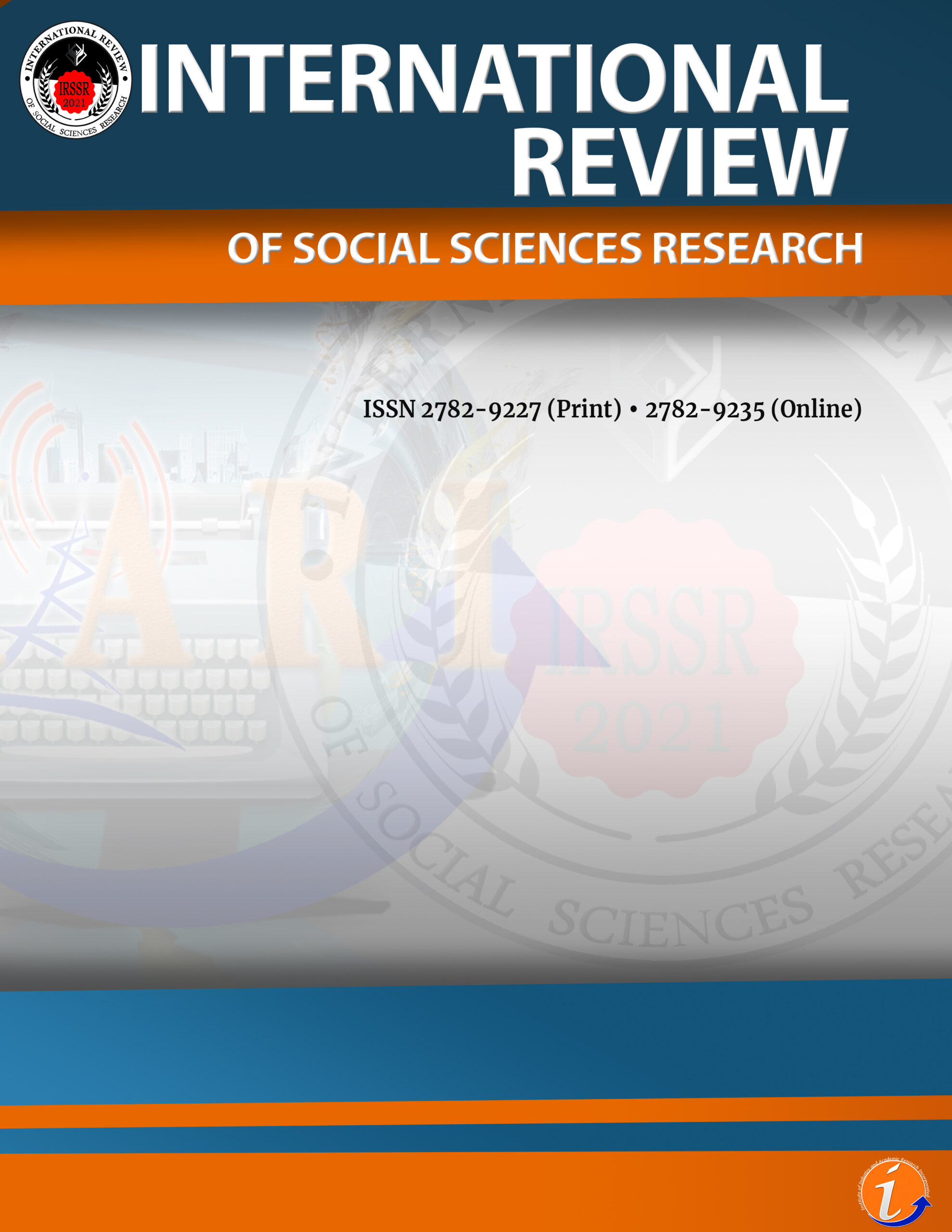The study evaluated the self-regulation related variables and the learners’ performance to determine any significant relationship. Through descriptive-correlational design, the data were generated from the 250 Grade 9 students of Dolores Macasaet National High School for the school year 2018 – 2019. The various statistical treatments were arithmetic mean and Pearson Product Moment Correlation. The results showed that the students’ self-regulation were “moderately high” in memory strategy, goal setting, self-evaluation, seeking assistance, environmental structuring, learning responsibility and organizing. Moreover, the manifested learners’ performance in terms of motivation, cognition, and behavior were also “moderately high”. It was further revealed that there is a significant relationship between the self-regulation variables and the learners’ performance. It is recommended to develop a program that will stabilize or strengthen the students’ motivation to self-regulate in terms of learning. This can be included in all aspects of classroom management. Further research using a standardized or validated questionnaire can further strengthen the findings of this study.
self-regulation, learners’ performance, motivation, cognition, behavior
Leni D. Magsino. Teacher, Dolores Macasaet National High School, Philippines
Barbosa et. al. (2017). Beyond the Personal Learning Environment: Attachment and Control in the Classroom of the Future. Interactive Learning Environments, 22(2), 146-164.
Dent, L., & Koenca, R. G. (2015). Self-direction and Factors Influencing Technology Use: Examining the relationships for the 21st century workplace. Computers in Human Behavior, 28(6), 2075-2082.
Dodge, T. (2010). Personal Learning Environments: A Conceptual Landscape revisited. eLearning Papers, 35, 1-16.
Dotson, Rader (2015). Students’ Engagement Literature Review (Department of Educational Research: Lancaster University, 2015).
Dullas, A.R. (2018). The Development of Academic Self.
Ebun, D. & Magallanes, T. (2018). Academic Self-Regulation of STEM SHS Students of Divine Word Colleges in Region I, Philippines and their Academic Performance. Texila International Journal of Academic Research. 5(1)
Farrington, et al. (2012). Teaching Adolescents to Become Learners. The Role of Non-Cognitive Factors in Shaping School Performance: A Critical Literature Review. Chicago, IL: University of Chicago Consortium on Chicago School Research.
Flanagan, L. J. “Why Understanding Obstacles is Essential in Achieving Goals?” (2014). Mindshift, KQED.
Garcia, A.V. (2017). Factors affecting students’ academic performance. SunStar Pampanga
Ghorbani, N (2011). Individualist and Collectivist Values: Evidence of Compatibility in Iran and the United States. Personality and Individual Differences, 35, 431–447.
Hayon, C. W. (2008). Helping Students Develop Self-Regulated Learning Strategies. Retrieved from http://bigenhoc.wordpress.com/
Kistner, M. H. (2010). Helping Students Become More Self-Regulated Learners. Students in Public Secondary Schools in Nairobi County, Kenya. School of Education, Kenyata University.
Lane G. Lansangan, M., G. Baking, E., T. Quiambao, D., C. Nicdao, R., V. Nuqui, A., C. Cruz, R.(2015). Correlates of students’ academic performance in intermediate level Journal of Business & Management Studies, 1(2). 1-7
Lester, Derek K. (2011): “Environmental Engagement Demand Differences within and among Holland Academic Environments” (Las Vegas: University of Nevada, 2011), 24.
Mangaoil, Armina B. (2018). “Psychological Factors and the Academic Performance among High School Students: Basis for Academic Self-Engagement Program” in SIPATAHOENAN: South-East Asian Journal for Youth, Sports & Health Education, Volume 4(2), October, pp.139-150. Bandung, Indonesia: Minda Masagi Press owned by ASPENSI with a print-ISSN 2407-7348.
Mintz, Ethan Yazzie (2009). Charting the Path from Engagement to Achievement: A Report on the 2009 High School Survey of Student Engagement. Indiana: Indiana University, 2009.
Patrick et. al. (2009). Enhancing Motivation and Self-Regulated Learning in Multimedia Environments. In R. D. Koo, B. C. Choi, M. R. D. Lucas, & T. C. Chan (Eds.), Education Policy, Reform, and School Innovations in the Asia-Pacific Region (pp. 525-547). Hong Kong: Association for Childhood Education International/Hong Kong y Macao (ACEI-HKM).
Porferio M. Almerino, Lanndon A. Ocampo, Dharyll Prince M. Abellana, Jana Gloria F. Almerino, Irene O. Mamites, Lilibeth C. Pinili, Janine Joy L. Tenerife, Regina E. Sitoy, Limuel J. Abelgas, Emerson D. Peteros, “Evaluating the Academic Performance of K-12 Students in the Philippines: A Standardized Evaluation Approach”, Education Research International, vol. 2020, Article ID 8877712, 8 pages, 2020. https://doi.org/10.1155/2020/8877712
Rio et. al. (2017). Going Beyond Test-taking Strategies: Building Self-regulated Students and Teachers. Journal of Curriculum and Instruction, 1(1), 31-47.
Sanchez, A.A. (2016). Towards the Development of a Transformative Leadership Framework in Curriculum Implementation. Philippine Normal University.
Schraw, A. & Mossman, S. H. (2016). Issues in Educational Research. University of Mazandaran, Iran.
Schunk, H. (2010). Innovative Ways for using GStudy to Orchestrate and Research Social Aspects of Self-Regulated Learning. Computers in Human Behavior, 26(5), 794-805.
Sicat, Gerardo P.; Panganiban, Marian (2009): High school background and academic performance, UPSE Discussion Paper, No. 2009,05, University of the Philippines, School of Economics (UPSE), Quezon City
Sozler (2012). Students’ Engagement Literature Review Department of Educational Research: Lancaster University, 2012.
Turingan, J. P., Yang, Y. (2009). A Cross-cultural Comparison of Self-regulated Learning Skills between Korean and Filipino College Students. Asian Social Science. Vol. 5, No. 12.
William and Black (2010). Assessment and Classroom Learning. School of Education, King’s College London, Cornwall House, Waterloo Road, London.
Wolters, C.A., Pintrich, P.R. & Karabenick, S.A. (2013). Indicators of Positive Development: Definitive Measures and Prospective Validity.
Yiğittir, S. (2010). Values That Parents of the Primary Pupils Demand to be Educated in School, Journal of Values Education, 8(19), 207–223.
Zarie, A.A. & Hatam, G. (2012). On the relationship between Self-Regulated Learning Components and L2 Vocabulary Knowledge and Reading Comprehension. Academy Publisher, Finland.
Zimmerman, B.J. (2010). “Becoming a Self-regulated Learner: An Overview. Theory into Practice”, 41(12), 64-20
Zumbrunn, S., Tadlock, J. & Roberts, E.D. (2011). Encouraging Self-regulated Learning in the Classroom: A Review of Literature. Metropolitan Educational Research Consortium (MERC).
Cite this article:
Magsino, L.D. (2021). Self-regulation learning variables and learners’ performance: A correlational analysis. International Review of Social Sciences Research, 1(2), 34-57. https://doi.org/10.53378/346498
License:
![]()
This work is licensed under a Creative Commons Attribution (CC BY 4.0) International License.










